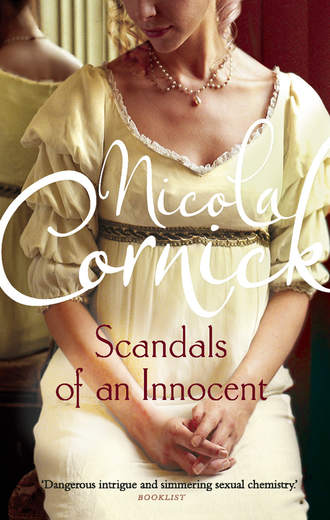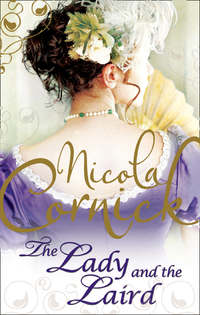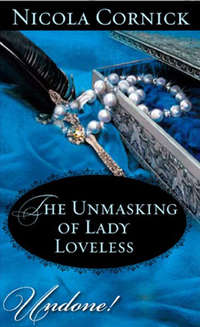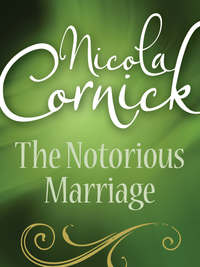
Полная версия
Scandals of an Innocent
“No,” Lydia said. “I feel wretchedly ill morning, noon and night!”
Alice privately thought that a part of Lydia’s suffering might well be caused by the mental anguish of having loved Tom Fortune so dearly and having been so horribly disillusioned in him. He was another reckless gambler like Miles Vickery, an out-and-out rake and philanderer who had taken Lydia’s love and smashed it to pieces. He had seduced her, made her pregnant, abandoned her and wound up in prison for his criminal activities. Lydia never spoke of her feelings for Tom, and Alice did not push her into it. She knew that Lizzie sometimes tried to get Lydia to open up, but Lydia remained adamantly silent.
The other matter they never discussed was what would happen when the baby was born. Alice had every intention of making over to Lydia the house in Skipton that Lady Membury had left her, so that Lydia and the baby could have a secure future. She had already instructed her lawyer to draw up the papers and she hoped desperately that her betrothal to Miles could not alter the arrangement. Lydia had once been an heiress herself but it seemed unlikely that her parents, the current Duke and Duchess of Cole, would settle any money on their disgraced daughter now, so Alice thought it imperative that she should protect her friend.
Lydia lay back in her chair with a heartfelt sigh and closed her eyes. She was now well advanced into her fourth month of pregnancy, and her slight body looked swollen and a little ungainly already. Mrs. Lister had commented that Lydia was increasing at so great a rate that she might be carrying twins.
“I will go and make you some dry toast,” Alice said, getting up. “Lady Membury told me that when she was increasing she found it was the only thing she could manage to eat.”
Lydia waved a hand to stop her. “That would be kind—in a moment. I did not realize that Lady Membury had had any children,” she added. She looked at Alice, hesitation reflected in her eyes. “If she had children of her own, why did she leave her fortune to you, Alice?”
“Her daughter died and she had no other relatives,” Alice said. Her former employer’s eccentric decision to leave her vast fortune to her housemaid had caused uproar in the tight-knit local society. It had been a shock to Alice, too, but it was also understandable and deeply poignant for her. “You know that she had been a recluse for many years,” she said. “She had no family or friends and she had turned against the local vicar years ago, so there was no way in which she would choose to leave her money to the church.”
“I can see myself ending like that,” Lydia said, with a flash of bitterness. “Alone and with no one in the world…”
“No, you will not,” Alice said fiercely, grabbing her hand. “You have friends about you, and anyway, this baby of yours thrives and is strong. Perhaps when he or she is born your parents will relent—”
“God forbid,” Lydia said involuntarily, and they both burst out laughing. “Lady Membury must have loved you,” Lydia added. “You would have been a great comfort to her, Alice. I imagine she was very lonely and saw you as the daughter she had lost.”
“Perhaps she did,” Alice said. There was a lump in her throat. “We used to talk about all manner of things,” she said, thinking back, “and go driving together, and drink bohea tea and gin, and play cards together.”
“And I suppose you let her win,” Lydia said.
“Well, of course,” Alice said. “She was my employer—and she had a fortune of eighty thousand pounds!”
They both burst out laughing again but then Alice sobered. “All the same, Lydia,” she said, “I sometimes wish that she had never left me her money. It can be a curse as well as a blessing.” She stopped, finding that she was on the verge of blurting out the truth of Miles’s blackmail to her friend. “I’m sorry,” she said, with a little constraint. “That sounds most appallingly ungrateful when my life is materially so much easier now than it was a few years ago.”
“Being an heiress is not always a fortunate thing,” Lydia said bitterly. “Look at the depths of greed it has driven Sir Montague to, with his ghastly plans to fleece us all with the Dames’ Tax and all his other medieval laws! And then there is Tom…” Her voice faltered a little, and Alice saw her knuckles whiten as she pressed her hands together in her lap. “I do not think he would have paid me the slightest attention had I been penniless. I think he knew that as he is a rackety younger son, Mama and Papa would never countenance his attentions to me. He deliberately sought to get me pregnant so that I would be obliged to marry him. The plan only went wrong when his criminal actions were exposed and he was arrested.”
“Oh, Lydia!” Alice was appalled at the heartless tale her friend was outlining. The same thoughts had occurred to her but she had hoped that Lydia had kept at least a few of her illusions. “I am sure that Tom cared for you—” she began, knowing that she did not believe it but wanting only to give comfort.
“Oh, pish!” Lydia said. “Tom cared for no one but himself. Which is why you should be careful of Miles Vickery, Alice.” Her gaze sought Alice’s and there was anxiety in the depths. “I know he is different in that he is a marquis, even if an impoverished one, and so has a title to trade for your money, but in terms of character I think him even more of a rake than Tom, more ruthless, more dangerous.”
“How right you are,” Alice said with feeling.
Both girls looked around as there was a clatter in the hall outside. Lizzie had evidently arrived back from her ride with Nat Waterhouse, for she could be heard chattering and laughing with Marigold, and then Alice heard her mother’s voice rising with excitement as she gave Lizzie the news.
“And the Marquis of Drummond called and I have every expectation of an engagement being announced shortly between him and Alice…”
The drawing room door crashed open. “Your mama tells me that you are going to marry Miles Vickery, Alice,” Lizzie announced as she rushed in. She pulled off her riding gloves and dropped them carelessly on the table. “Am I to congratulate you?”
“That would be premature,” Alice said.
“Ha! I thought so!” Lizzie said, flinging herself down on the window seat. “I told her you should be clapped in Bedlam if you were even considering it!”
“Well,” Alice began weakly, thinking that perhaps she should take the opportunity to start preparing the ground, but then she realized that Lizzie was not attending, anyway.
“You will not believe what has happened!” Lizzie said, sitting bolt upright and fixing her friends with a furious glare. “Nat Waterhouse is to marry that pea brain Flora Minchin!”
“Good gracious!” Alice said, startled. She remembered Miles’s lazy observation that Lizzie was in love with Nat even though she had known him forever and treated him like a brother. Miles had not, she realized now, said that Nat felt the same way. And everyone knew that Lord Waterhouse was yet another impecunious fortune hunter out to snap up a rich prize.
“How do you feel about that, Lizzie?” she asked.
“Oh, it is none of my affair if Nat chooses to throw himself away on a featherbrained heiress who will bore him silly within a se’nnight!” Lizzie said crossly. “I could not care one iota!”
Alice exchanged a look with Lydia. “I expect you told him that, too,” Lydia said.
“Of course!” Lizzie wriggled impatiently. “But I need not concern myself because it will never happen. Nat could not be so stupid as to marry that henwit. He will see sense before the knot is tied.”
Once again Alice’s eyes met Lydia’s. Lydia raised her brows slightly and Alice shook her head. Both of them knew that Nat Waterhouse was eminently capable of going through with such a marriage for money and that if he had already made Miss Minchin an offer he could not now, in honor, back out. There was no point in telling Lizzie that, of course, for she was in no mood to listen.
“Flora Minchin is a sweet-natured girl,” Alice said.
“Only because she is too stupid to be anything other than agreeable,” Lizzie snapped.
“I don’t think she is anywhere near as stupid as you think, Lizzie,” Lydia said surprisingly. “I think you misjudge her.”
“I don’t care about Flora,” Lizzie said impatiently. “The problem is that now I do not even have Nat’s escort to the ball at the Granby tomorrow, for he is to accompany Flora and her family!”
“How thoughtless of him,” Alice murmured. “Well, we shall both have to make do with my brother, Lowell. He has promised to escort me and I am sure he will be happy to do the same for you, Lizzie. Besides, you are seldom short of admirers.”
“I like Lowell,” Lizzie said, brightening. “That will be delightful.”
“He likes you, too,” Alice said dryly, “but he is wasting his time. You would make a terrible farmer’s wife.”
Lizzie laughed, her good humor restored. “With my fortune he could be a gentleman of leisure. It is worth a thought.…”
“No, it is not,” Alice said quickly. The idea of Lizzie and Lowell making a runaway match was, she thought, the worst scheme since Lizzie’s last bad idea about robbing the gown shop. Lizzie would run rings around Lowell. She needed a firm hand and Lowell was far too easygoing. “Lowell likes working for a living,” she said. “I know that may seem strange but some of us require occupation.”
“Oh, do not worry.” Lizzie yawned. “I know Lowell prefers to work morning, noon and night. We would see a great deal more of him here at Spring House if it were not so. Last time we met I told him how very tedious and bourgeois it was of him!” She slewed around in her seat so she could look at Alice properly. “And do not think that I have not noticed how restless you become when you feel you have little to do, Alice. You are the same.”
“Bourgeois,” Alice said. “I know.”
Lizzie had the grace to look a little ashamed. “I did not mean that. It is merely that you prefer to keep occupied.”
This, Alice thought, was true and well observed of Lizzie, who could sometimes surprise with her insights. “Leading the life of an heiress bores me dreadfully,” she admitted. “I need to be active. It is a pity that Mama does not feel the same. She sits here each day waiting for genteel callers who never arrive and then she feels most dreadfully snubbed.”
“Now that you plan to start a charity for destitute servants, you will be very busy indeed,” Lizzie said. “I am surprised that Mr. Churchward agreed to advance you the money for it. I hear he is very proper and some of those girls are fallen women.”
“Most of them have done nothing more than make a mistake,” Alice said carefully, wishing that Lizzie were not quite so tactless with Lydia sitting there, pregnant and unmarried, in front of her. “It is wrong to judge. Besides,” she added, to turn the subject, “I can only use my interest, not my capital, so neither of my trustees need worry that I am spending profligate sums.”
Mrs. Lister entered the room followed by Marigold with the luncheon tray. This was set out on a cloth with the Lister coat of arms embroidered on it. In vain had Alice explained to her mother that they were not entitled to use the arms because they had never been awarded to their branch of the family. Mrs. Lister had tossed her head and claimed that since the Duchess of Cole had a coat of arms, she would have one, too. She had then proceeded to embroider or net them onto anything and everything: chair backs, tablecloths and even the knitted coat worn by her pet dog.
“Oh, delicious!” Lizzie exclaimed as she saw the luncheon. “Jellied chicken and ham pies!”
Lydia had paled at the sight of the chicken and now she got hastily to her feet. “I think I will take a rest in my room,” she murmured. “No, dear ma’am—” She fended off Mrs. Lister’s inquiry as to whether she would take any food, “I have no appetite today.”
“Oh, dear,” Alice said as the door closed behind her, “she seemed so much better today. I’m afraid she will starve herself into a sickness at this rate.”
“Nat was asking after Lydia’s health,” Lizzie said, munching through one of the little pork pies.
“So was Lord Vickery,” Alice said, accepting the cup of tea that Marigold proffered.
“Nat asked if she ever received any letters,” Lizzie added. “I thought it an odd question, for why should he be interested? And who would write to her? Her cousin Laura is close by so need not send letters, and the rest of her family have cut her off and it is not as though she will ever hear from Tom.…”
Alice paused, remembering that Miles had asked if the wedding dress had been for Lydia. She had been startled, because the only person Lydia was likely to marry was Tom Fortune and he was locked up in jail. And then Miles had also asked if Lydia ever saw anyone, and Nat had asked if she received any letters…A nasty suspicion formed in Alice’s mind and she looked sharply at Lizzie to see if the same doubts had also occurred to her, but Lizzie was digging her spoon into the dish of jellied chicken and chattering to Mrs. Lister about what she could see in the tea leaves.
“The raven,” Mrs. Lister said, peering into the depths of her cup. “That means bad news or a reversal of fortune.”
“That will be for Lord Vickery then,” Lizzie said. “Nat told me that he was planning to auction off the contents of Drum Castle next week because he is so debt-ridden that he will be clapped in the Fleet before long.”
Alice remembered the bleak look in Miles’s eyes when he had told her he stood to lose everything. No wonder he had pressed her so hard to accept him. He had not lied when he said that he would be ruined by debt. She struggled against a sudden and treacherous feeling of sympathy for Miles having to endure the humiliation of losing his entire birthright in so public a manner. Then she felt angry at her own weakness. Miles deserved no pity from her.
“Truly?” she said. “Lord Vickery’s situation is genuinely that bad?”
“Worse than bad,” Lizzie said cheerfully. “That is why the sale is happening so soon. The lawyers pressed Lord Vickery to it as soon as he inherited as the only way to save himself. They are to sell off the farmland and other parts of the estate, and the entire contents of the castle. The only thing that cannot be sold is the castle itself, for it is entailed.” She turned back to Mrs. Lister. “I thought that we might take the carriage out to Drum next week, ma’am, and see how the sale goes? We could buy ourselves a few souvenirs—”
“Lizzie, no!” Alice said, revolted. “That is like vultures picking over a carcass!”
“Well someone has to buy the goods,” Lizzie said, unmoved, “and it might as well be us! I hear that the late marquis had some delightful porcelain figures—though not all of them are quite respectable—but I know that your mama would like to increase her collection by buying some of the more tasteful ones.”
This decided the matter. Mrs. Lister was most enthusiastic, and Alice found herself overruled. “For, my dear,” Mrs. Lister said reasonably, “our money is as good as anyone else’s and I think we should make a show.”
It went much against the grain with Alice, but then she thought of Miles’s ruthless attempt to blackmail her into marriage and she felt cold and sick. Why was she wasting her sympathy on a man who did not understand the meaning of the word compassion? He deserved nothing from her other than her absolute disdain. Her money was her own to do with as she chose until she wed, provided that her trustees approved. If she embarrassed Miles by making a vulgar show of her fortune only a week after being blackmailed into accepting his hand in marriage, then he had no one to blame but himself.
“By all means let us go to Drum,” she said, “and buy up the marquis’s entire estate if we wish. The more I think about it, the more the idea appeals to me.”
Chapter Six
“OH, DARLING, I cannot believe that such an appalling thing could have happened!” Dorothea, the Dowager Lady Vickery, rushed into the drawing room of Drum Castle, enfolded her elder son in a scented embrace, then released him to stand back and dab artistically at her eyes with her inadequate and lacy handkerchief. “I am so sorry for you, Miles, darling! To have inherited the Marquisate of Drum is…Well, it is quite…” Words seemed to fail her and she took refuge once more in wiping the tears from her eyes.
“It’s a damned disaster,” Miles finished for her, “begging your pardon, Mama.” He had been working on the estate finances in preparation for Churchward’s visit, and the grim columns of figures had not improved his mood. Drum had been badly run for years and had brought in very little income. His cousins had suffered from a congenital failure to understand that they had no money to spend. The combination of the two was disastrous and meant that he was more deeply in debt than he had realized. Alice’s eighty thousand pounds would clear most of the debt, and selling off those parts of the estate that were not entailed would ease the situation a little, but once he and Alice were married and her money spent the two of them would have nothing other than his Home Office salary—which was barely enough for one to live on, not two—and this ruined monstrosity of a castle. They would be surviving on credit for the rest of their lives unless he could think of a way to make a fortune.
Under the circumstances the arrival of his mother was about as welcome as one of the plagues of Egypt. He looked at her with ill-concealed impatience. “Might I ask what you are doing here, ma’am?” he said. “I really did not expect this.”
The dowager opened her hazel eyes plaintively wide. “We came to support you in your hour of need, darling,” she said. She gestured airily toward the door. “Celia is here, and Philip, too. When I realized that dear Mr. Churchward was coming to consult with you on matters of business—” she waved a hand at the lawyer, who was struggling into the room weighed down with what looked like a monstrous amount of the dowager’s luggage “—I prevailed upon him to allow us to accompany him. We knew that you would need us by your side at this difficult time.”
“How perceptive of you, Mama,” Miles said grimly. He nodded to the lawyer. “Churchward, you have my sympathies. I wish you had not bothered to come, Mama,” he added brutally, turning back to his mother. “This place is utterly uninhabitable, there are no servants and I will be selling off all the contents next week. There is nowhere for you to stay and you know you hate the north of England.”
The dowager’s expression set into lines that were surprisingly mulish. “Well, we shall all manage somehow,” she said briskly. “And you need not fear that we will have to stay in this ghastly ruin—” she cast the baronial room a look of profound dislike “—for we have arranged to visit your cousin Laura Anstruther at the Old Palace in Fortune’s Folly. I only had the luggage brought in because the carriage is so ancient that it leaks and the weather in the North is so appalling.”
“You are staying with Laura?” Miles asked. That was bad news, he thought, for it meant that Lady Vickery would be established in Fortune’s Folly for at least a month, possibly longer. He groaned inwardly. That would give her ample time to interfere in his courtship of Alice and cause all sorts of problems.
“I am so looking forward to getting to know Laura’s new husband better,” his mother was saying. “The Home Secretary speaks most highly of him. I hear he is one of the Hertfordshire Anstruthers. He is vastly handsome, is he not?”
“Dexter isn’t my type,” Miles said grimly, making a mental note to ask his friend what the hell he was playing at to allow Laura to invite his entire family to stay.
Celia Vickery came up to him and offered a cool cheek for him to kiss. “How are you, Miles?” she said, appraising him with her sharp hazel gaze. “Still alive, I see. The Curse of Drum has not yet carried you off.”
“Give it time,” Miles said. “Could you not have dissuaded Mama from coming, Celia?” he added, scarcely bothering to lower his voice. “You know I don’t want any of you here.”
His sister, the eldest of the family and unmarried at thirty-three, gave him an old-fashioned look. In appearance Celia was like their mother, with the same oval face, dark brown hair and winged eyebrows that had once proclaimed Lady Vickery a beauty. Yet it was odd, Miles thought, that the looks that had made Dorothea Vickery a diamond of the first water were somehow muted in her daughter. Celia could probably be described as well to a pass but she was no incomparable. Nor was she remotely like their mother in temperament but more like Miles himself, cool, cynical and direct.
“Of course I could not put her off,” Celia said. “You know mother is as persuadable as a Nile crocodile! Do you think I wanted to traipse all the way up here to see you, Miles?” she added. “It is the most damnable nuisance.” Her expression softened slightly as she looked at Philip, who was admiring a huge, dusty suit of armor that stood in a dark corner. “Actually I think Philip wanted to come. He enjoyed the travel and the new scenes, and he wanted to see you, Miles—”
Miles turned away from the appeal in her eyes. Philip, a late child and the apple of his mother’s eye, had been five years old when Miles had quarreled so dreadfully with their father and had left home to join the army. The boy was a stranger to him and that was the way Miles intended to leave it. It was far, far too late for him to establish a relationship with his family and he did not even want to try.
“There are no servants to make any refreshments, I fear,” he said pointedly as his mother sat down on an ancient chaise longue and raised a cloud of dust that almost choked them. “Why do you not repair to Fortune’s Folly now whilst Mr. Churchward and I conduct our business, Mama? I could join you all later for dinner.”
The dowager turned her expressive hazel eyes on him. “But, Miles, darling, we have only just arrived,” she protested. She settled back more comfortably, gestured Philip to sit beside her, and it was clear that she was going absolutely nowhere.
Miles sighed. He drove his hands into the pockets of his well-cut jacket of green superfine—fourteen pounds from Mr. Welbeck, the premier men’s outfitter in York, who was never likely to see the cash for it—and strolled over to the window. Outside, the early February day was already closing in; a gray mist hung over the Yorkshire fells, and the sleet spattered the window. The wind whistled in the chimneys and sent the cobwebs scurrying across the floor. The last thing that Miles wanted was his family with him in Yorkshire at such a time. They had already been obliged to sit by when he had sold Vickery House out from under them two years before, and before that Vickery Place, the sprawling country house in Berkshire where Miles and his brother and sisters had grown up. Now he would be selling Drum, as well, or at least the bits of the estate that were not entailed, plus all furnishings, fixtures and fittings. The Ton would soon be calling him the Merchant Marquis, or some such cutting sobriquet, for he was the man who had put his entire birthright on the market. He did not care, but he knew his mother would. The financial ruin of the Vickery barony and her consequent loss of status had hit her hard.
“I appreciate your concern for me, Mama,” Miles said carefully, without turning back to look at his mother, “and I realize that it is distressing for you to know that I am even more deeply in debt now than I was before I inherited Drum—”
“Oh, I am not worried about the debt!” Lady Vickery declared. She had always had a rather tenuous grasp of finance. “You can always find an heiress to wed, Miles! No, I am here because of the Curse of Drum! It is the most lamentable piece of bad luck to befall our family in years! You are doomed, Miles, positively doomed!”
Miles remembered Nat Waterhouse commenting on his mother’s superstitious nature and tried to smother his annoyance. “The only doom that is waiting for me, Mama,” he said, “is a sojourn in the Fleet if I cannot find myself an heiress in short order. You know I don’t believe in all that superstitious twaddle about the Curse of Drum.”









